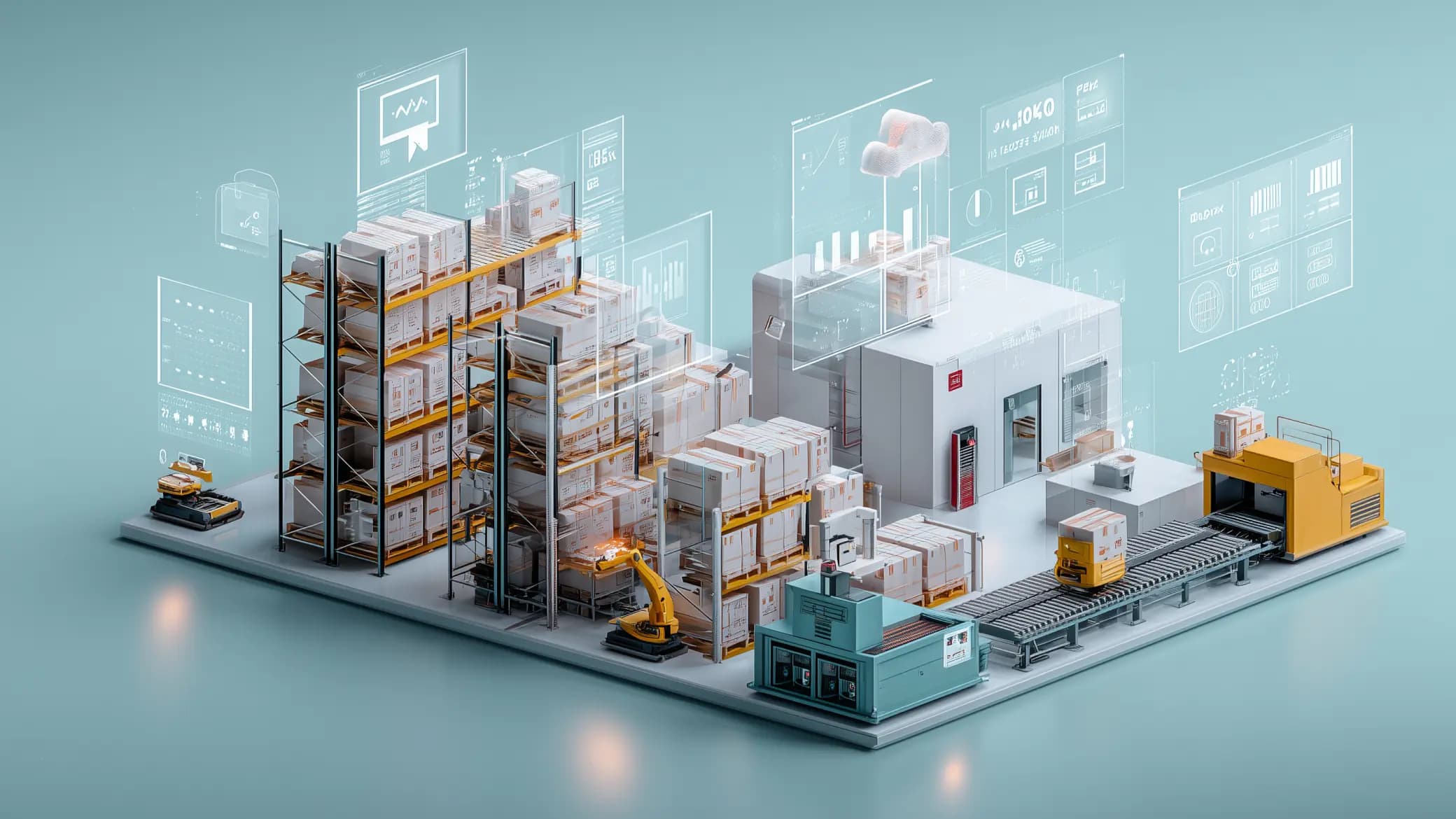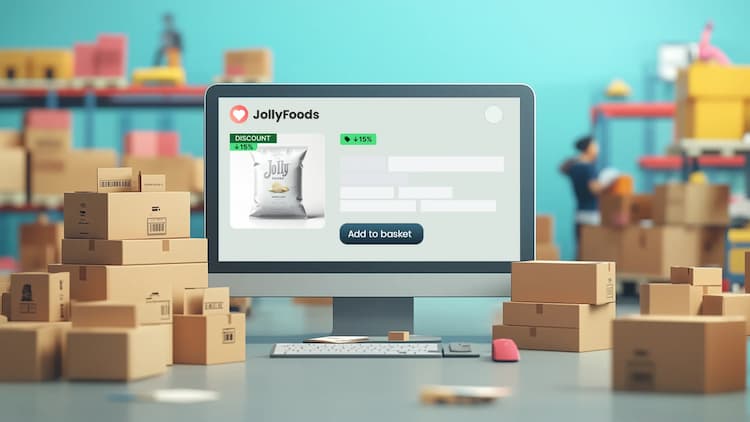What is eCommerce Infrastructure?

Summary
Table of Contents
B2B eCommerce is no longer a wave—it has become a known standard. Still, behind every achievement in B2B online shopping is something that you would never expect: infrastructure.
The e-commerce infrastructure you have is a physical support structure for the operations of a digital form. It interlinks your products, customers, systems, and teams so that online selling becomes seamless, scalable, and profitable.
In this guide, we will analyse what eCommerce infrastructure really is, why it is necessary for your wholesale business, and how to establish the right foundation for the cultivation of your business with confidence.
What is eCommerce Infrastructure?
eCommerce infrastructure is the technical specification, tools, and technologies that ensure the operation of your online store and digital operations.
For B2B wholesalers, it includes everything from your website and mobile app to inventory systems, payment gateways, order fulfilment tools, and data integrations. It’s not just about having a platform—it’s about all the pieces working together to support your entire customer journey.
Without strong infrastructure, things misfire. Some orders are omitted. Clients suffer from dissatisfaction. Therefore, expansion stops.
Basic Elements of an eCommerce Infrastructure
Now, let us identify the main segments of the B2B eCommerce infrastructure. Each one is significant to keeping the daily operations running and ensuring the customer is happy.
1. Website Platform
Your B2B website is beyond a mere digital storefront—it is your online sales engine. It should support customer-specific pricing, product catalogues, bulk ordering, and account management.
🔗 Looking to upgrade? The Simplisales Website builds specific B2B wholesalers and obtains a full package that goes with it- no coding skills needed.
2. Mobile eCommerce App
Mobile sales are the trend in B2B. A branded app gives the buyers the ability to order on the go, check their order history, and receive push notifications for promotions or new products.
The Simplisales App is a mobile commerce solution for wholesalers that requires no effort on your part.
3. Product Information Management (PIM)
Are you in charge of thousands of SKUs? You will require a main system to synchronise, refresh, and send the product data to your website and app. A powerful PIM provides uniformity and precision—two characteristics expected by B2B buyers.
4. Inventory and Warehouse Management
Accurate knowledge of the stock and location plays a huge role in preventing overselling and delivery delays. Whether you operate one warehouse or a network of them, your infrastructure must include real-time inventory tracking and proper warehouse coordination.
Learn more about multi-warehouse management and how it supports scalable fulfilment.
5. Order Management System (OMS)
An OMS is a system that follows every order from the time it is placed until it gets delivered, dynamically routing orders to the correct warehouse, informing customers, and adjusting your inventory.
The Simplisales Dashboard brings order management into one place so that you can fulfil orders faster and also avoid unnecessary mistakes.
6. Customer Relationship Management (CRM)
CRM provides a space for customer data, keeps track of interactions, and promotes personalised experiences like targeted pricing and custom promotions for your business customers.
Our blog post How to Improve B2B Customer Experience? It can help you prevent miscommunications with your customers.
7. Payment and Invoicing Systems
In contrast to B2C, B2B payments generally involve credit terms, invoices, and bank transfers. Your system of infrastructure must offer different payment options while ensuring that transactions are secure.
8. Security and Compliance Tools
Security plays a huge role in B2B and cannot be disrupted. Make sure your infrastructure is equipped with customer data protection, regulation compliance, regular backup, and fraud protection.
For more information about new, inclusive, and compliant online experiences, explore our guide on web accessibility in e-commerce.
Why eCommerce Infrastructure Matters for B2B
The following list of reasons explains why it is critical not only to make correct form choices, but also why it is essential:
Reliability: A consistently running system that works behind the scenes will reduce downtime, errors, and abandoned carts.
Scalability: Will be able to promote new products, increase customers, and grow sales without stressing the team or systems.
Efficiency: Processes like inventory syncing, order routing, and customer onboarding will be automated.
Customer Experience: Your clients will experience a hurdle-free yet B2B nature buying process across all devices.
Cost Reduction: Eliminate manual administration and optimise processes to increase the profit margin.
Choosing the Right Infrastructure for Your Business
There’s no one-size-fits-all solution—your eCommerce infrastructure should reflect your unique business model and growth goals. To know more about the successful business models, check out our blog post: Proven B2B Business Models for 2025: What Works and Why
Here’s what to consider when building or upgrading:
- Business size and product range: What is the total number of SKUs that you have? Are you supplying to multiple customer segments?
- Sales channels: Are you just selling online, through sales reps, or via marketplaces?
- Fulfilment model: Do you want to ship from one warehouse or require multi-location coordination?
- Tech stack: Are your current systems compatible, or is data stuck in silos?
This is why Simplisales can be such a help. Instead of integrating tools together by yourself, we offer you a Uni-Packaged solution tailored for hybrid B2B sales, both online and offline.
Build a Stronger eCommerce Foundation with Simplisales
Your infrastructure is the main factor affecting scaling efficiency, whether you’re moving online for the first time or modernising an old system.
With Simplisales, you receive:
- A ready-to-sell B2B website with built-in product, customer, and order features
- A branded mobile app for easy reordering and on-the-go sales
- A central dashboard to manage inventory, orders, and analytics
- Seamless integration across all your sales channels
Conclusion
Experience a seamless B2B e-commerce journey with Simplisales.
The future is bright for wholesale businesses. Make it brighter with Simplisales, a simple and affordable B2B e-commerce solution for wholesalers.
An effective eCommerce infrastructure is more than just a technical upgrade—this is a provision for the proper business growth, customer satisfaction, and operational efficiency. Whether you are venturing into the market or you are replacing your old infrastructure with another one, if you equip yourself with the right systems, you will be able to scale safely and keep your competitive edge. You can run your operations across all touchpoints as smoothly as possible with the help of the fully integrated tools in the package provided by Simplisales, which are purposefully built for B2B wholesalers.
Related Articles
Industry news straight to your inbox
Get the latest commerce news, trends, and strategies to grow your business
Subscribe to newsletter
By submitting this form, you agree to receive promotional messages from Simplisales


